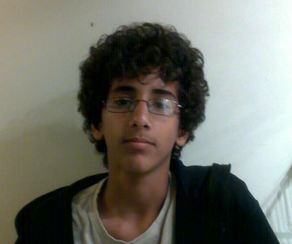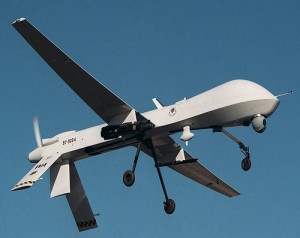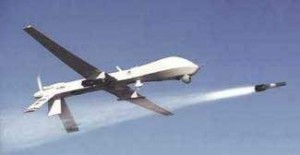Karman Argues Against Amnesty for Saleh as al-Awlaki Family Continues Protests
As I wrote yesterday, the family of Anwar al-Awlaki and his son, Abdulrahman, has spoken out against the US killing of these two American citizens, one just 16 years old, in separate drone strikes in southern Yemen. The birth certificate of Abdulrahman has now been released to confirm his age and to counter false media reports that he was over 20 years old. In addition, the family has provided the name and age of a 17 year old cousin, Ahmed Abdulrahman al-Awlaki, who was killed in the same strike with Abdulrahman last Friday while they were enjoying a nighttime barbecue.
So far, I’ve seen no claims issued by the US that Abdulrahman was a militant. Instead, the implicit assumption is that Abdulrahman was collateral damage in a strike that was targeted at Ibrahim al-Bana, who is described as the media chief for al-Qaeda in the Arabian Peninsula. By contrast, Anwar al-Awlaki was placed on Obama’s official “hit list” of persons targeted for killing. The US has made multiple accusations against him, but those allegations have not been substantiated. Here is the Indian publication Frontline on the veracity of the US accusations:
After the events of September 11, 2001, Awlaki was among the small group of radicalised American Muslims who threw in their lot with Al Qaeda. His sermons in English with an American accent urging Muslims to wage jehad against the West reputedly had a wide fan following on YouTube and other websites. After a U.S. Army officer of Palestinian origin, Major Nidal Mallik Hassan, went on a killing spree in a military base at Fort Hood in November 2009, Awlaki’s name hit the headlines. It was reported that the U.S. Army veteran was in touch with Awlaki before he went on the rampage in which 13 people were killed. Awlaki had denied having encouraged Hassan in any way but later praised his act saying that it had prevented the U.S. soldiers who were killed from being deployed in Afghanistan or Iraq where they “would have killed Muslims”.
Awlaki was also blamed for attempts to blow up American passenger planes, though the claims have not been substantiated. The Obama administration linked Awlaki with the failed Christmas 2009 attempt of Umar Farrouk Abdulmutallib, the “underwear bomber”, to bring down a Detroit-bound plane. Awlaki was also accused of playing a key role in the October 2010 “mail bomb” plot. Packets containing bombs, originating from Yemen and bound for the U.S., were intercepted in Dubai and Europe. In May 2010, a Pakistani-American who tried to detonate a car bomb in Manhattan told the U.S. authorities that he was inspired by Awlaki’s sermons.
In one of his sermons recorded in early 2010, Awlaki urged American Muslims to stage attacks. “Jehad against America is binding upon myself just as it is binding on every other able Muslim.”
But if reports in the Arab media are anything to go by, Awlaki was only a minor cog, used mainly for propaganda purposes, in Al Qaeda’s major network. His fluency in both English and Arabic coupled with his knowledge of the Quran helped him gather a big fan following, especially among the youth. Experts on Yemen have said that he had no operational role in Al Qaeda. The top commanders are Yemenis and Saudis who have been leading the fight against the U.S. presence in the region for many years. The AQAP’s main leadership continues to be intact and is no doubt busy hatching new terror plans. Awlaki was forced to flee into the desolate mountain region where his tribe is located and where Al Qaeda has a presence in order to escape from the Americans, who had put a bounty on his head. Read more →



